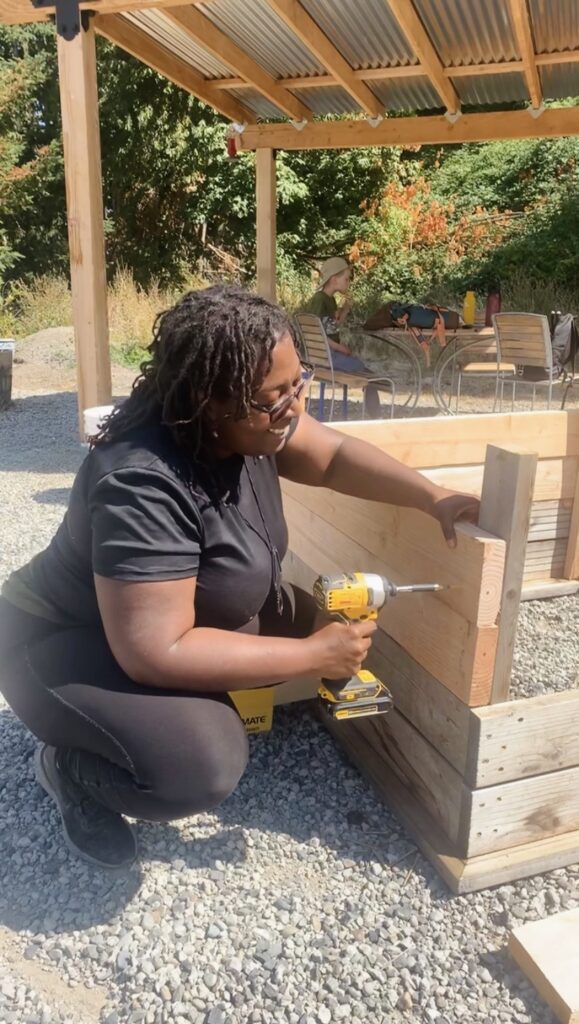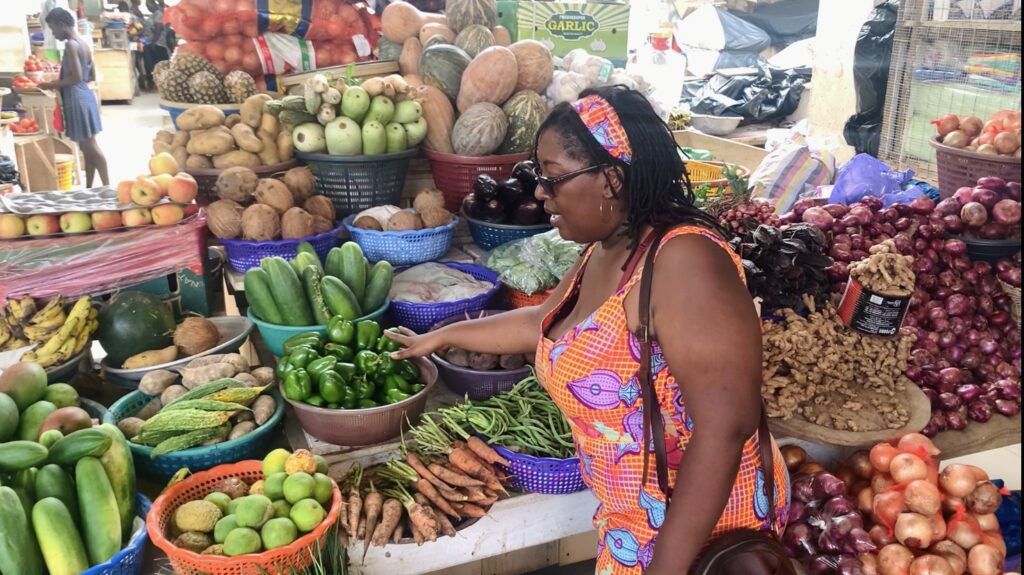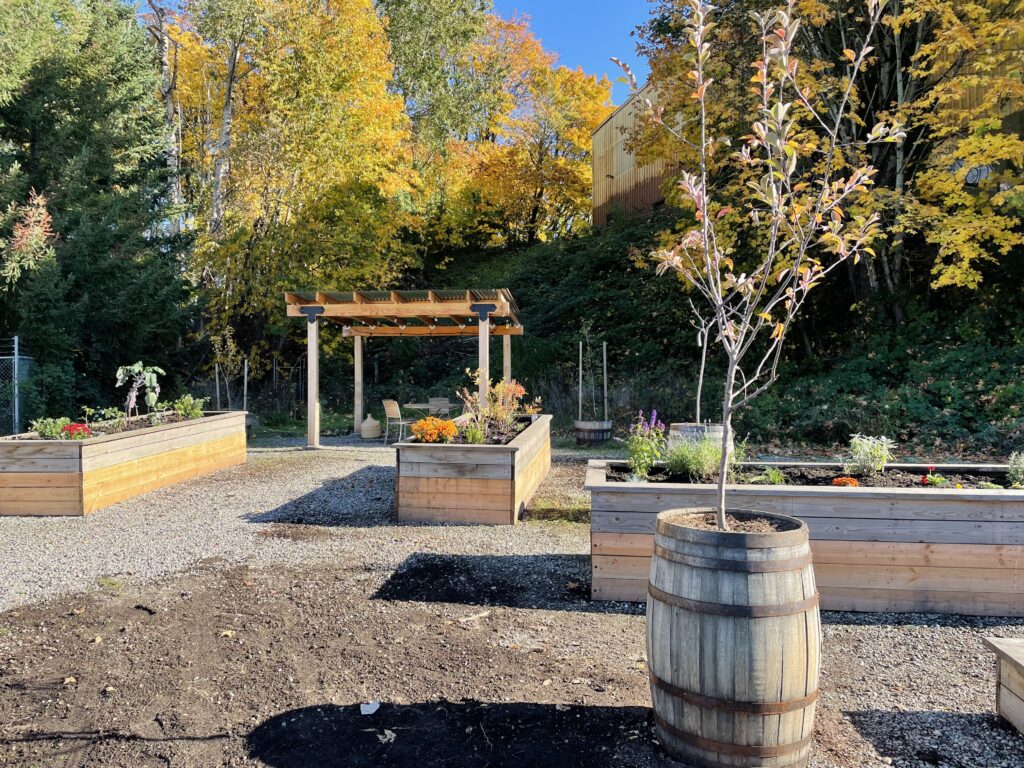This story was originally published in Vol. 33, Issue 7 (March 2023)
As part of WSU Vancouver’s celebration of Black History Month, CILA hosted “Decolonize with Cecile Evans,” a documentary screening and a Black community panel discussion featuring agroecologist permaculture designer and environmental educator Cecile Evans and panelists Rachelle Dixon and Dyvisha Gordon on Feb 21.
The event began with Evans’ documentary about food sovereignty and food justice. Food sovereignty is a food system in which the mechanisms and policies of food production and distribution are controlled by the people who produce, distribute and consume food. This system is centered around equity and access to healthy and culturally appropriate food, as well as ecologically sound and sustainable methods of production and distribution. Featured in the documentary were several clips of local farmers of color sharing their experiences and practices of owning and tending to their land.
The documentary also covered food apartheid, a problem caused by the social and racial inequalities in our food system. Taking into account factors such as income, race and geography, food apartheid highlights the fact that the current food systems in place make it difficult for people living in low-income areas to access fresh, healthy food, as well as the importance of land access, stewardship and ownership among marginalized communities.
Much of Evans’ documentary was filmed in Ghana, where she currently lives. She moved there from the Pacific Northwest in 2021, wanting to connect with her ancestry and visit somewhere where the Indigenous people had removed their colonizer.
“I was [in Ghana] watching communities have full shelves, food at every corner, backyards and front yards filled with food,” said Evans. “Neighbors growing food and sharing it with the community, I know that was kind of a full circle moment, I can feel that making the decision to come to a place where the colonizer had been removed from power showed me what our ancestors want us to do, how our ancestors expected us to live, it was definitely eye-opening and quite fulfilling.”
Evans also worked on the Reparations and Earth Restoration Initiative Anti-Oppression Medicinal Herb and Food Permagarden at Transition Projects’ Argyle Gardens in Portland, an affordable housing complex for people who are low-income or formerly experienced homelessness. Completed in 2020, the Permagarden, a garden that yields produce year-long, provides food and medicinal plants for the residents, and they choose how they want to use the garden.
“When you see the joy in peoples’ faces when they have access to a safe outdoor space where they can go and pick the vegetables they planted, that right there is a moment,” said Evans. “Those are the moments that I think make it worth it. They make this kind of work worthwhile, seeing people of color, poor people, queer people, feel safe and confident in outdoor spaces.”
A lack of resources as well as various anti-food legislation and practices is a significant barrier that impedes progress towards a more sustainable and equitable food system, according to farm-to-table caterer and food justice advocate Rachelle Dixon. She mentioned Safeway closing stores and then preventing other stores from running in those communities for the next five years, as well as homeowners’ associations having the power to decide where residents can have their own gardens, and even prevent residents from having them. With farmers of color in the vast minority, access to resources is especially crucial.
“The soil and water conservation is a taxing body, for Portland and Multnomah and really all around the state, but they don’t really provide a lot of resources to [Black, Indigenous and people of color] in terms of being able to farm, and that’s what they’re there for, for community support, farm support, most of the farmers within the city are smaller farmers and they could use a little help,” said Dixon.
Community Wellness Director Dyvisha Gordon talked about her work in the Equitable Giving Circle, a nonprofit that distributes weekly food boxes, plants, housing assistance and school items for families in the Portland area. The Equitable Giving Circle purchases its produce at market rate, providing a direct farm-to-table type of service that emphasizes quality and freshness.
“The idea of giving scrappy-type foods, foods that are not at their peak nutritional value or freshness to communities that are systemically disadvantaged is something that causes more harm than good,” said Gordon. “The issue is overproduction, inaccessibility and unaffordability.”
Following the panel and Q&A, Evans and CILA advisor Bari Boyd facilitated a discussion with event attendees about what they had learned, ways they can pursue food justice in their daily lives and be allies to Black and Indigenous people and other marginalized groups.
“In all the work that I do, I try to uplift these voices, and I think that is what I would ask community members to do as well,” said Evans. “Take the time to find organizations that are uplifting the voices of the Black women that are in your community.”


